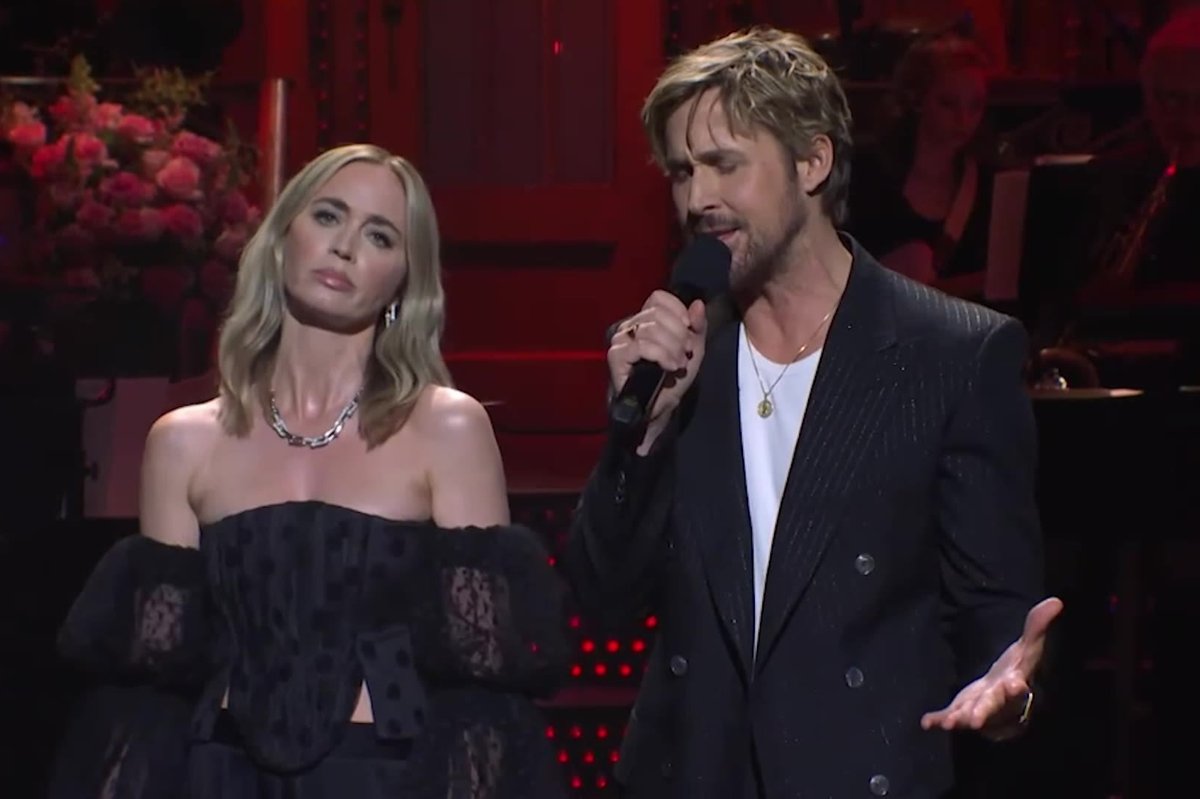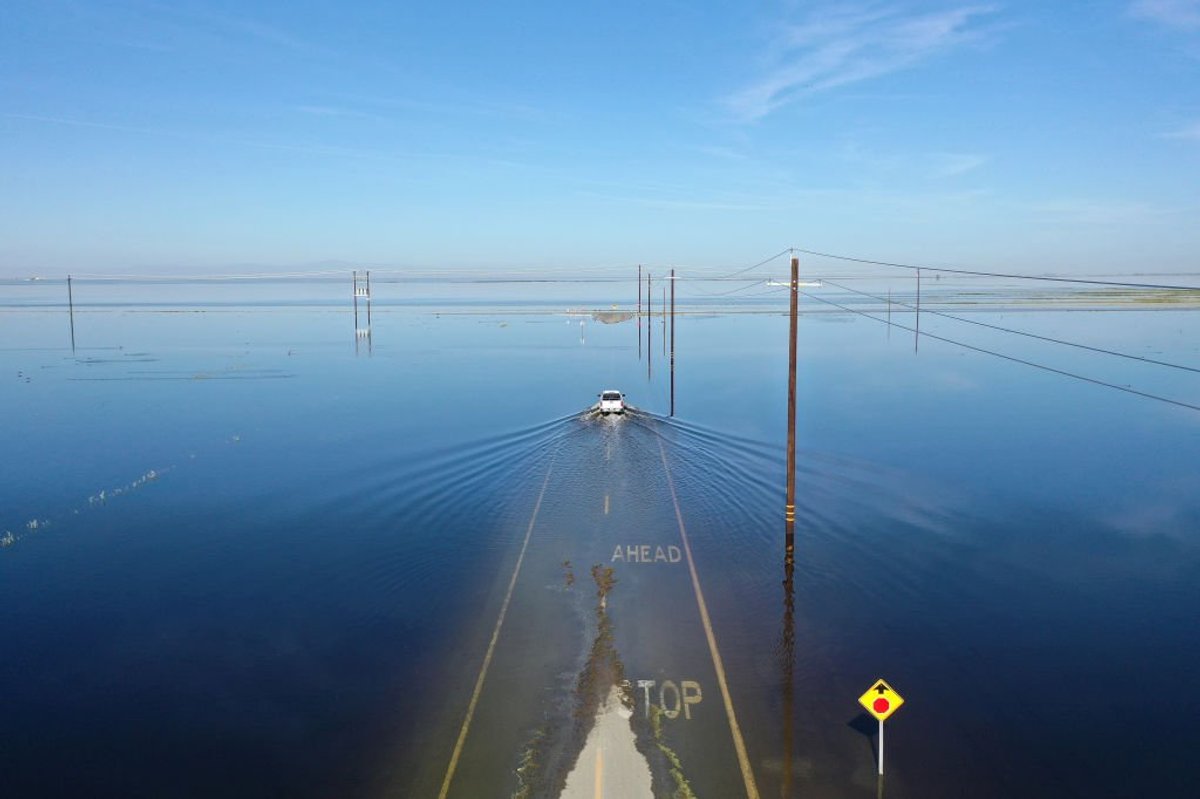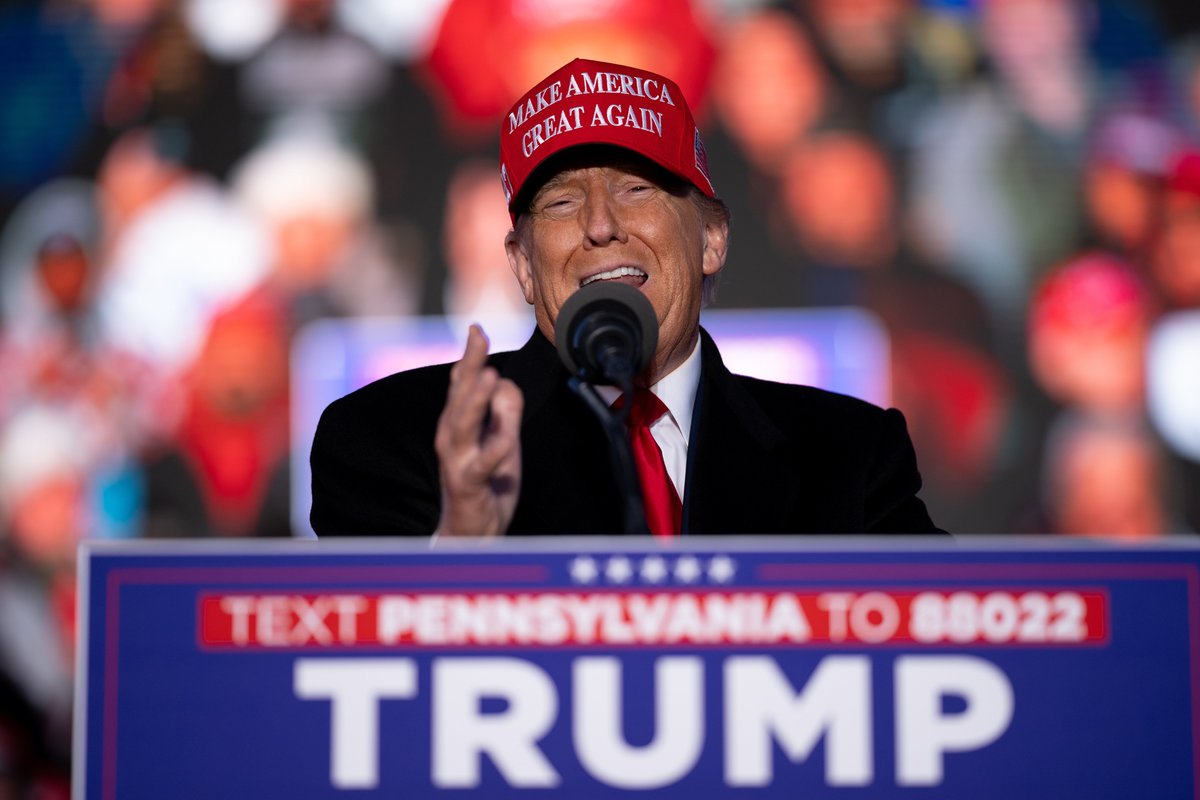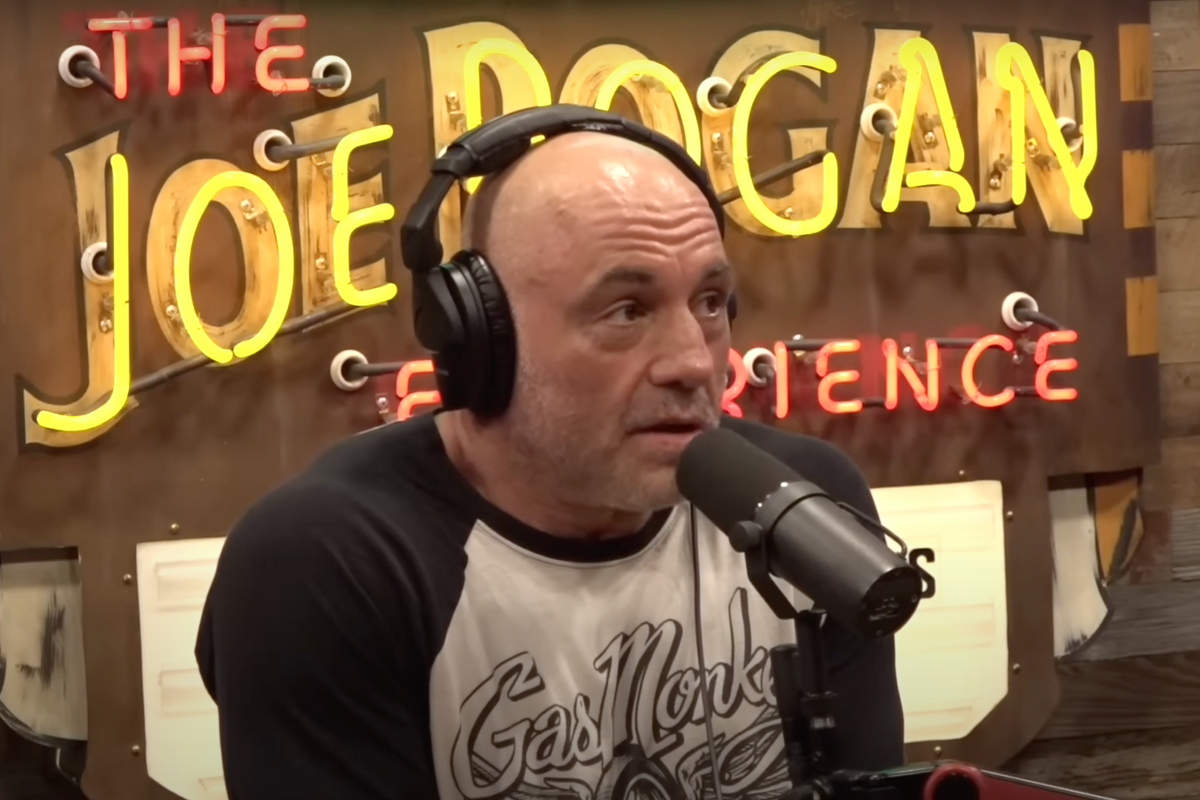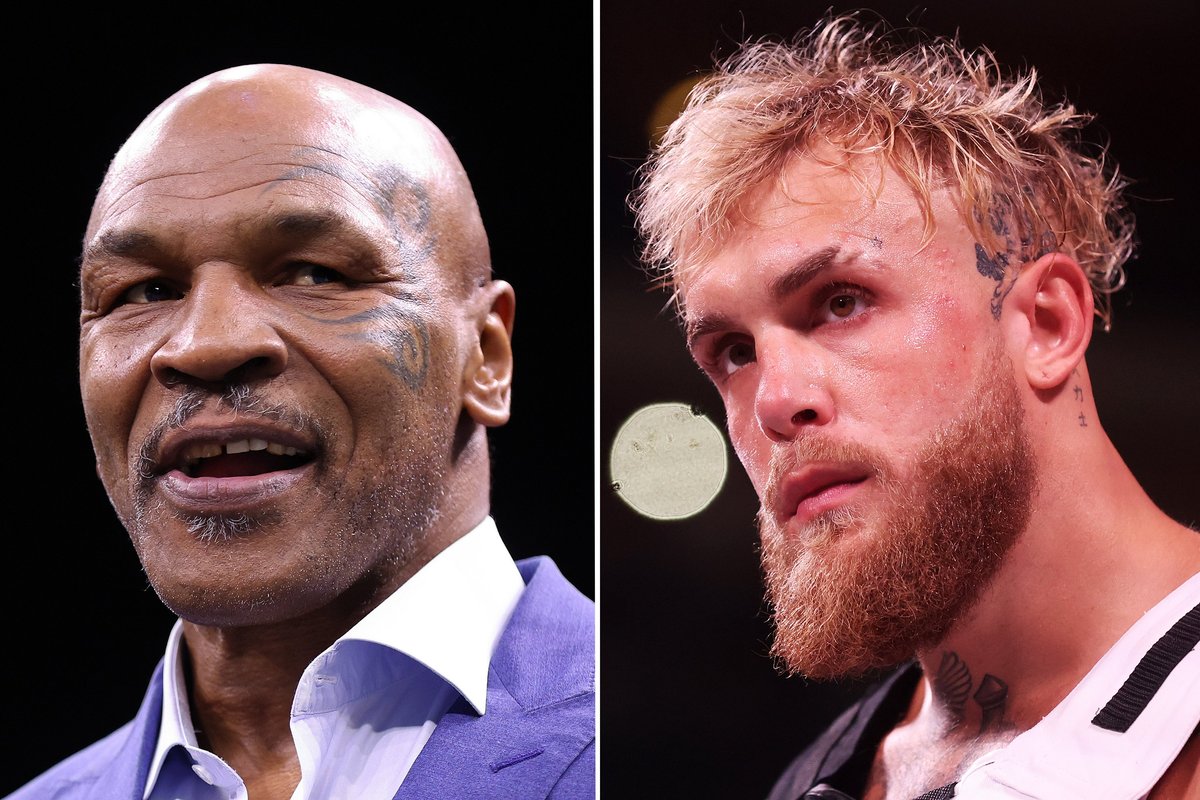News
Sirena Bergman
Mar 04, 2020
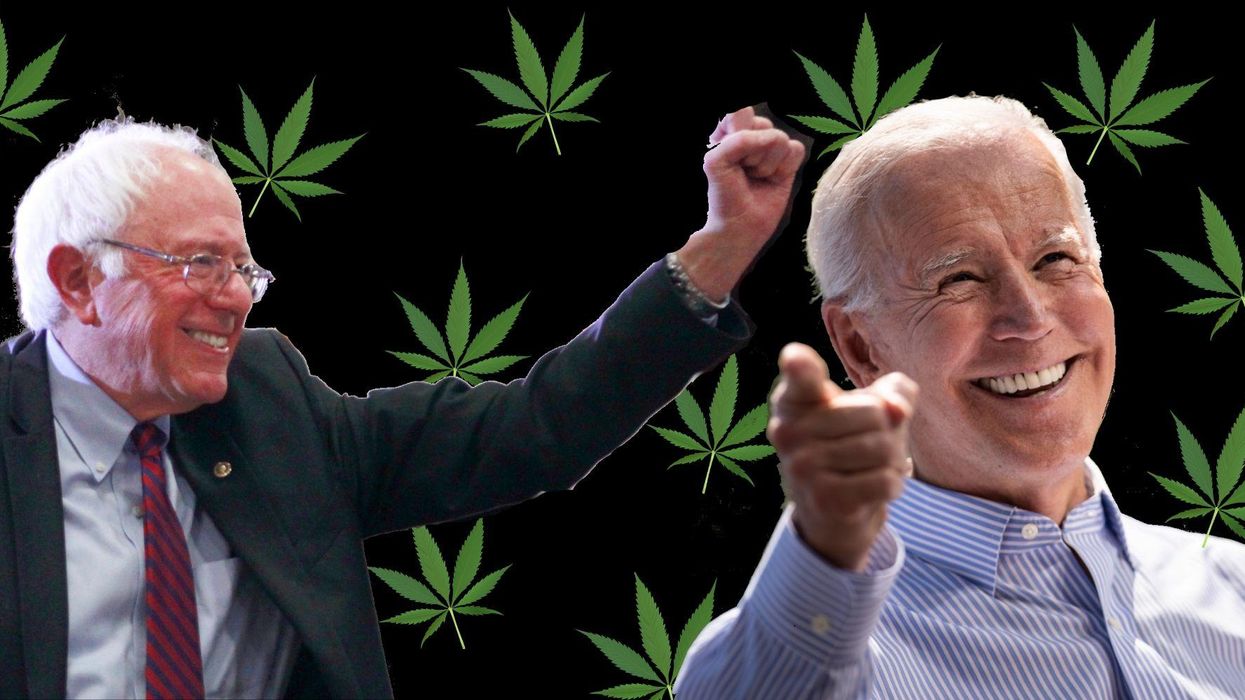
Getty/indy100
Every Democrat thinks they know what they're voting for today – Bernie Sanders or Joe Biden: radical or establishment; socialism or moderate centre-left; "Medicare for all" (otherwise known as letting poor people access healthcare as well as the rich) or the status quo.
But there is one issue which many people are voting for, even if they're not aware of it.
That one issue? Weed. Pot. Dope. Cannabis. Ganja. Marijuana. You get the picture.
At the South Carolina debate last month, Sanders reiterated his position on hardcore legalisation on this front.
He said:
We have a criminal justice system that is not only broken but is racist, and has more people in jail than any country on Earth. And one of those reasons for that is a horrific war on drugs. We’re going to effectively legalise marijuana in every state in the country.
We’re going to provide help to the African-American, Latino, and Native American community start businesses to sell legal marijuana, so that a few corporations don’t control the legal marijuana market.
He announced his support for what he's calling legalisation last year. (On 24 October at... 4:20pm. Because obvs.)
Currently 33 states have legalised cannabis for medical use, and 11 have done so for recreational use. But on a federal level (aka nationwide) it's still illegal. This creates all kinds of conflicts and issues which could be resolved with Sanders' plan.
But what about Biden?
Joe Biden is now looking like he might come out as the frontrunner after all. Despite the past weeks giving life to everyone hoping for someone a little different (either in ideology or identity) to literally every president who has gone before, a huge Biden win in South Carolina has deflated that dream. Perhaps a career politician with a problematic record but a "safe pair of hands" vibe is what Democrats will go for after all, proving the 2018 midterms success of radical left-wing candidates (especially women and people of colour) has been quickly ignored forgotten.
Biden has stated that he thinks cannabis should be "basically legalised", but his stance is confusing and weird (much like everything else he's said recently). He stated that:
There are some in the medical community who say it needs to be made a Schedule II drug so there can be research studies, as not whether it is a gateway drug but whether or not it, when used in other combinations, may have a negative impact on people overcoming other problems, including in fact on young people in terms of brain development – a whole range of things that are beyond my expertise. There are serious medical folks who say we should study it more.
There are "some in the medical community" who say all kinds of things. But we're talking about "serious folks", apparently. OK, Joe.
It all stands in stark contrast to Sanders' take, which is much more in line with the general consensus – according to a 2019 Pew Research Centre poll two thirds of Americans supported legalising cannabis. This was quite a change from 2000, when two thirds said it should be illegal. It's almost as if Biden is wildly out of touch with the electorate.
Anyway...
What's the background of federal legalisation?
The persecution of marijuana intensified after President Nixon's War on Drugs in the early 1970s. Nixon temporarily categorised marijuana in Schedule 1 (along with hallucinogenics and opium), the most restrictive category of drugs, pending review by a commission he appointed. In 1927 the commission unanimously recommended decriminalising the possession and distribution of marijuana for personal use, but Nixon ignored this guidance and marijuana remains categorised as Schedule 1 to this day.
By the time George W Bush took office, the War on Drugs had largely run out of steam, as people realised the negative impacts (namely on minority communities) of such zealous prosecution, yet Bush allocated even more money to the cause, promoting programmes including student testing.
Over subsequent decades, the impact of these draconian laws has been huge.
According to the FBI Unified Crime Statistics, marijuana accounted for more than a third (36.8 per cent) of possession and use drug crime arrests in 2018. This places a huge burden on law enforcement and uses up valuable resources which could be allocated towards more pressing issues.
In fact, despite marijuana being broadly considered the least damaging drug, police may actually be disproportionately prioritising it. Christopher Ingraham writes in The Washington Post that:
The federal government incentivises aggressive drug enforcement via funding for drug task forces and generous forfeiture rules that allow agencies to keep cash and other valuables they find in the course of a drug bust. And because marijuana is bulky and pungent relative to other drugs, it’s often easy for police to root out.
Marijuana use is roughly equal according to race, yet African Americans are almost four times more likely to be arrested for unlawful possession than white people. In 2017, people of color made up 86 per cent of marijuana arrests in New York in 2017.
This is presumably in part what Sanders was driving at when he mentioned the "African-American, Latino, and Native American community".
But it's not just about rooting out inequality, legalising marijuana could also have a hugely positive impact on the economy.
A New Frontier Data report released in October suggested that, if federally legalised, the cannabis industry could produce close to $130bn in additional tax revenue and over one million jobs nationwide.
In many ways, it would also benefit the people already trading in this space. Currenly many cannabis businesses in states where it is legal struggle to find banks which will work with them given the murky legality of it at a federal level. There are also complex taxation discrepancies which limit cannabis businesses' abilities to implement the deductions that other businesses can, so their tax bill can end up being up to 90 per cent higher.
Sounds great... are there any drawbacks?
Sort of. Interestingly, while two thirds of Americans support legalising marijuana, Repubicans are disproportionately opposed to it, despite being the party of libertarianism and individualism. It seems they're here for everyone's personal responsibility when it comes to paying extortionate prices for healthcare, but want to control what people choose to do with their bodies anyway.
The case against federal legalisation is essentially that it will encourage more people to use marijuana. There is some evidence of this being the case, in particular a study released in November which showed an increase in use for people aged 26 and older. (Turns out teenagers don't much care whether they're getting high legally or not.)
However many have pointed to the possibility that the causation here is flipped (were people using marijuana more because it was legal or was it legal because more people used it?). Perhaps more crucially, this data was based on self-reporting, so one could argue that people are more likely to admit to using a legal substance than an illegal one.
And even if people were using cannabis products more, is that necessarily a problem?
The short-term health risks of cannabis use (impaired coordination and lowered inhibitions leading to potentially risky behaviour) pale in comparison to that of legal drugs like alcohol (possible short-term outcome: death).
In the long term, heavy drinking can lead to a host of potentially fatal health problems, while marijuana use has not been proven to have any more severe conseques – in some cases it can exacerbate pre-existing (or pre-disposition to) mental health conditions such as psychosis and schizophrenia (although alcohol has been linked to depression and anxiety). There is no evidence that smoking marijuana leads to lung cancer in higher numbers than smoking tobacco. When it comes to social effects, marijuana is also not demonstrably more dangerous than legal drugs: driving under the influence of THC is statistically less likely to cause an accident than driving while drunk. Cannabis is also not linked to violent behaviour, while alcohol is.
But by far the biggest concern – even among supporters of marijuana legalisation – is the possibility that this will create a problematically powerful industry, consolidating all of the money that can be made into the hands of the already rich and powerful.
Sanders knows this, and has a plan, apparently. He essentially wants to ban companies which make "cancer-causing products" (read: alcohol and tobacco) from entering the industry, and put regulation in place to limit monopolies. But it's unclear exactly how he could achieve this. Indeed, it doesn't seem like something which could be fixed by way of executive order on day one, and Republicans still control the senate, so passing any kind of regulation is going to be a struggle.
If Sanders becomes president, can he actually pull this off?
Sanders is suggesting he will sign an executive order which effectively allows him to bypass congress (see: Trump's travel ban).
Technically, there's no reason why this can't be done, but it's the additional areas he's promised to act on that could be an issue, such as the aforementioned de-monopolisation, as well as expunging past convictions.
There are also a number of interested groups who would not be happy.
Alcohol companies are still trying to figure out where they stand on this: a study from Georgia State University found that alcohol sales fell by 15 per cent in states where only medical marijuana had been legalised and by 20 per cent in counties where recreational marijuana is legal. This would seem like it would be a reason to oppose legalisation, however the alcohol industry has actually quietly been investing in the legal cannabis industry for decades, suggesting they view it as a space for expansion, rather than competition.
A report from 2016 shows that the pharmaceutical industry is heavily opposed to further legalisation of cannabis in the US. Interested parties included Purdue Pharma, which has since filed for bankruptcy in the wake of a series of lawsuits related to Oxycontin and its impact on the opioid epidemic in the USA. Studies show that marijuana can be used as an alternative to opiate-based pain medication.
It's worth noting that while Sanders has publicly condemned his rivals for accepting money from the medical insurance and pharmaceutical industries, he is not entirely immune to these types of donations either, unlike for example Michael Bloomberg (who is awful, but is also self-funded).
What does all of this mean?
The value of the issue at hand is pretty subjective, but it's not hard to argue that the legalisation (or lack thereof) of marijuana on a federal level would have huge impact on both an economic and social level.
Ultimately, Democratic voters are making a choice today, not just based on healthcare (which is the main dividing factor among the two frontrunners) but also on whether they want to continue in a vein of prohibition or individualism.
The latter is very much a Republican value, but perhaps one which in this case, the Democrats would do well to embrace.
MORE: Why Democrats living abroad have more power on Super Tuesday than anyone else
Top 100
The Conversation (0)
x
